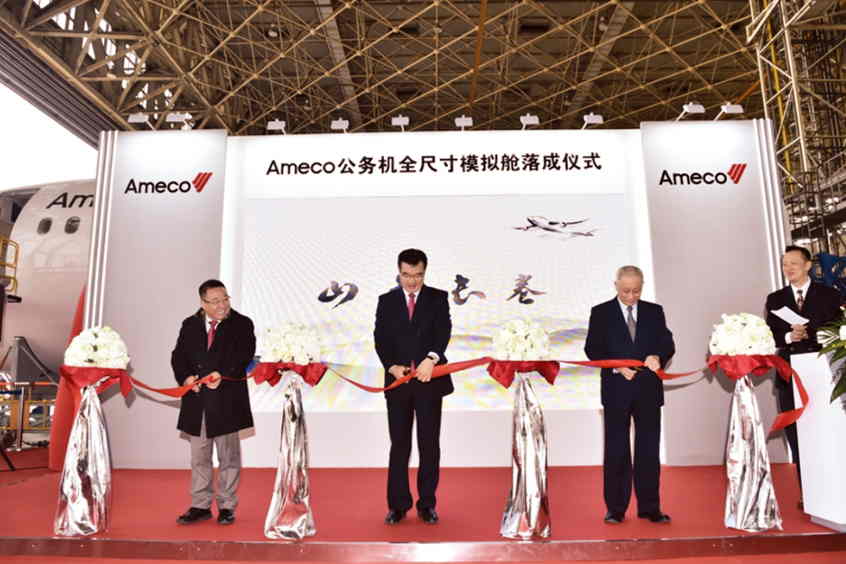 The monthly news publication for aviation professionals.
The monthly news publication for aviation professionals.





AsBAA has celebrated its third executive forum in Beijing with an event that welcomed leaders from the industry in China, during which Chinese MRO specialist Ameco celebrated the completion of its full-size ACJ319 cabin mock up.
“Today marks a milestone for the development of Ameco in the field of the aircraft cabin solutions,” said Ameco CEO Ni Jiliang. “We are dedicated to providing customer-tailored, one stop services for the industry and we thank AsBAA for providing an opportunity to showcase and network.”
At the ceremony, guests visited the ACJ319 full-size cabin simulation. AsBAA vice chairman Paul Desgrosseilliers said after boarding: “I want to congratulate Ameco on the completion of this wonderful mock-up and the extraordinary amount of time and energy that went into every detail. The ACJ 319 interior is both stunning and comfortable yet functional at the same time. There's no doubt that Ameco is well positioned as a leader in designing and completing VVIP aircraft and is set to take advantage of a growing completion and refurbishment market that is beginning to emerge in Asia.”
Ameco has been involved in completion and maintenance on large scale business jets since the 1990s. It is a CAAC Designated Modification Design Organisation Representative (DMDOR). It has Parts Manufacturer Approval (PMA), CAAC MDA/STC and SAI Global-issued AS/EN9100 certificate of registration and EASA Design Organisation Approval, as well as being authorised as an official BBJ licensed completion centre and warranty service centre.
The third AsBAA executive forum was held right after the ceremony. Technical experts and executive representatives from CAAC's academy of science and technology and AsBAA member companies held in-depth discussions and exchanges, including the application and implementation of security data for business jet operation. Participants agreed that airport, FBO and general aviation infrastructure investment should be developed in tandem with the characteristics of the business jet market, which could promote the local economy. Only when the market is dominant will there be competition and order, which leads to the promotion of benign interaction between regulation and ful market openness.
The executives also made suggestions for AsBAA's work on how to unite industry colleagues and to campaign more effectively on behalf of the industry through strategic planning and implementation, in dialogue with regulators and local governments. Its social responsibility programme especially needs to support and encourage both young practitioners of the industry and the new generation to devote themselves to the aviation profession.
Zhang concluded the forum by saying: “The evolution of business aviation in mainland China is very clear over the last two years. The industry is returning to rationality and is in a special period of maturity. AsBAA stands for the whole industry chain and will work with its members and industry colleagues to keep moving forward. Advocacy, representation and community are AsBAA's three pillars: we promote the core values of the business aviation initiative through a variety of activities; we speak on behalf of the industry, members and all stakeholders of business aviation; and we are building a sustainable aviation community that promotes economic development and employment.”